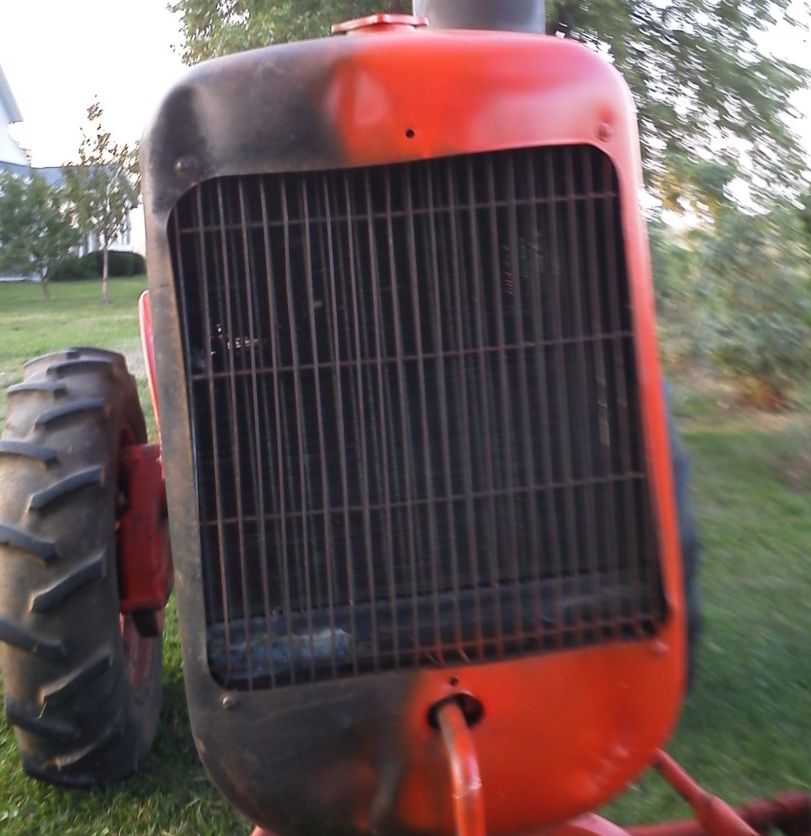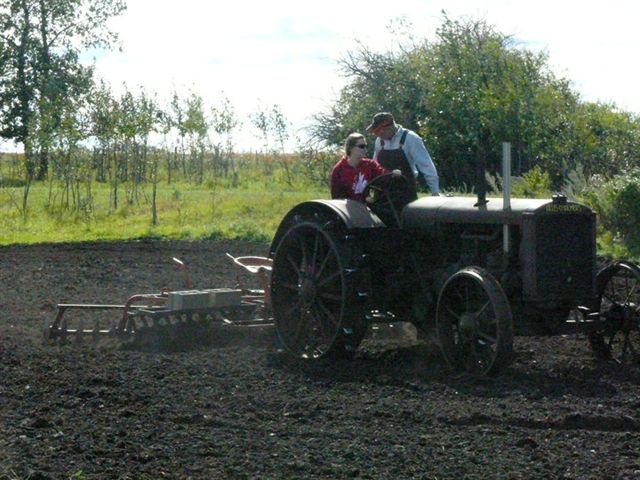Hmmm... I'm certain there's others with deeper input than I, but when it comes to older engines, it is my inclination to NOT put a detergent oil in them unless I've first dropped the pan and scrubbed 'em out really good.
Detergent oils have the propensity to break down crud, which normally isn't a bad thing, but when an engine has been run for years with a non-detergent, crud usually settles out to the bottom. Loosening that up opens the possibility that the crud will get pumped up into the engine.
The other thing to be concerned about... is wether the engine has filtration. I don't think (unless someone added it later) that your engine has a filtration system... but if it did, it's certainly a partial-bypass system. No relevant issues if you DID clean the pan out good, but if you haven't, ANY filtration system would be extremely well-exercised, if not overwhelmed, by loose crud.
I cut to the chase on my oldie projects by dropping the pan and cleaning 'em out really good FIRST... and after that, I give 'em a few short-term oil changes with detergent-based. I CAN tell you that many very picky engine guys add zinc to their oil for purpose of providing soft-metal lubricating properties for flat-tappet engines. Most oils prior to a few years ago had zinc as a standard additive for that purpose, but EPA mandates took zinc out of the picture. For roller-follower valvetrain, it's much closer to a non-issue.
Other than that, I always consider the context under which these things were originally built. Many guys think an old tractor engine needs leaded fuel or other considerations.... they rarely do, as adding TEL to fuel did not START until the late '30s, but didn't gain any popularity until after WW2, and had no benefit for engines with lower compression ratios, and finally, industrial-spec engines had hardened valve inserts as a 'standard'circumstance... on many automotive engines, the seats were just raw iron for the reason of lowering manufacturing costs. Tractor engines were usually designed to be used in gaseous as well as liquid-fuel applications, so no special fuel considerations were necessary...
Which brings forth one more point- your 25-40 was rated this way because it was built to operate on either gasoline, or distillate fuel. Use of the latter resulted in accumulation of unburned fuel finding way past the rings and into the sump. Being heavier fraction, it didn't cause any significant damage to anything, aside from thinning the lubricating oil a bit. I don't know if the 25-40 engine had such a fixture, but I once owned an F-series four-cylinder that had a pair of drain petcocks on the oil pain, where the daily procedure for running on distillate was to park it on level surface overnight, and in the morning, open the upper oilpan drain, and let it drain 'till it wouldn't drain any more... to remove the excess distillate from pan. This would 'thin' the oil, so next oil change would clearly result in loose crud running out the bottom. My F12 had not seen distillate in at least twice my lifespan, I dropped the pan and mucked out half a coffee-can of black goo... reassembled it with ordinary 10-30 and called it good, and it did just fine on that...
Anyone else got any suggestions for Jim?









 Topic Options
Topic Options

 Post Options
Post Options Thanks(0)
Thanks(0)



 20-35 all original. When I got it twenty years ago, it had been sitting in a shed for about 40 years or more. It wasn't stuck and I soon got it running. I drained the old oil which I'm sure was straight 30 wt. I removed the two inspection covers and cleaned out as much sludge as I could. I refilled with 15-40 diesel rated oil. and it's been running fine for the last twenty years with no issues. It's been used occasionally for discing and harrowing and even won it's class in the local tractor pull a few years ago against rubber tired tractors, mostly painted green!
20-35 all original. When I got it twenty years ago, it had been sitting in a shed for about 40 years or more. It wasn't stuck and I soon got it running. I drained the old oil which I'm sure was straight 30 wt. I removed the two inspection covers and cleaned out as much sludge as I could. I refilled with 15-40 diesel rated oil. and it's been running fine for the last twenty years with no issues. It's been used occasionally for discing and harrowing and even won it's class in the local tractor pull a few years ago against rubber tired tractors, mostly painted green!